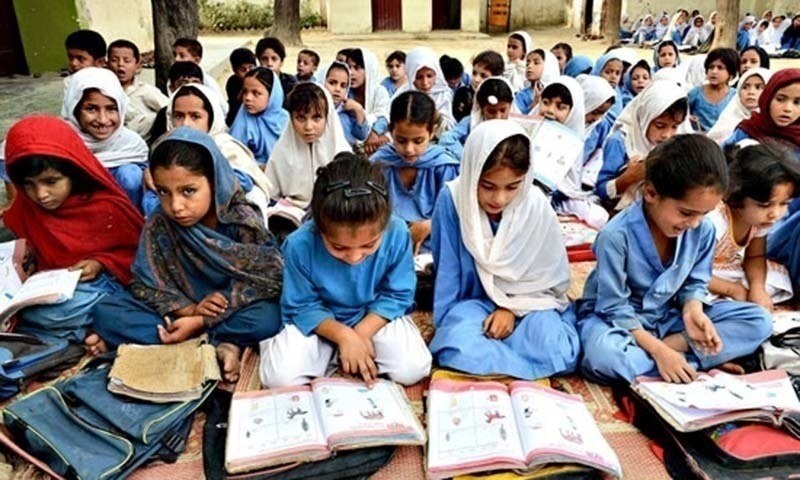KARACHI: Presenting Sindh’s education budget for fiscal year 2021-22 on Tuesday, Sindh Chief Minister Syed Murad Ali Shah stressed the importance of education as the single most important factor in the development of a nation.
“The government of Sindh envisages providing quality education to all, enabling our children to realise their full potential. We must take a good look at the curriculum being followed in schools to ensure that they are free from outdated ideas and train our teachers so that they take a genuine interest in stimulating keenness and curiosity in our children from the outset so that our future generation comprises thinkers and innovators in every field of inquiry,” he said.
With that aim in sight, he said that the government had allocated the highest percentage of resources towards education in 2021-22. “It will see an increase of 13.5 per cent over the allocation of the current financial year. So for the next financial year we propose to enhance the budget for education to Rs277.5 billion from the previous Rs244.5 billion.
“In the current fiscal year of 2020-21, the annual development programme allocation for the educator sector was Rs21.1 billion. It comprised school education, college education, universities, empowerment for persons with disabilities, and skill development. In 2021-22, the government has earmarked Rs26 billion for the sector,” he announced.
School education
For 2021-22, the budget of the school education and literacy department has been increased to Rs222.102bn.
“The school education and literacy department has been allocated Rs14 billion for 117 ongoing schemes and 186 new schemes. Most schemes are for upgrading existing government schools from primary to secondary levels, rehabilitating and improving schools, providing furniture, basic and missing facilities, construction and reconstruction of existing dangerous school buildings,” he said.
Rs1bn has been allocated as grant in aid for the Education Management Organisations (EMOs) for handing over management of various schools to EMOs. Moreover, the government has allocated Rs6.6bn for the purchase of furniture and fixtures, Rs6.1bn for new activities with the help of international donor agencies and Rs2.3bn for free textbooks, amongst other expenditures.
College education
For FY 2021-22, the budget of college education has been increased by 11.8 per cent to Rs22.8bn.
An allocation of Rs4bn has been proposed in the annual development programme 2021-22 for 43 ongoing and 64 new schemes.
The chief minister said that improvements to female education would provide a country with a more knowledgeable workforce, healthier families and ultimately prosperous societies.
A sum of Rs100 million has been allocated for Bakhtawar Cadet College for Girls Shaheed Benazirabad, being described as the first institution of its kind in Pakistan. Besides this, Rs292.55m has been earmarked for seven cadet colleges in Sindh.
There are also five new public colleges that have been approved for next fiscal year. “We have kept Rs1 billion of endowment fund in the next fiscal year. The fund aims to provide financial assistance to students,” the CM said.
An amount of Rs120m has also been allocated for the Sindhi Adabi Board, Jamshoro.
There is also a grant for IBA Community Colleges in the next financial year. The grant is increased by 50pc from Rs80m to Rs120m. Financial assistance of Rs46.2m has been provided to the heirs of civil servants who died during service in the current fiscal year.
Also the issue of librarians/directors physical education has been resolved by creating 68 new posts of BPS-18 and 19.
17 new degree colleges
Some 17 new degree colleges will also be established in districts of Hyderabad, Jamshoro, Sukkur, Shikarpur, Jacobabad, Sanghar, Umerkot and three districts of Karachi division — Korangi, Malir and West.
Calling the Sindh Education Foundation a major arm of the government of Sindh for public-private partnerships in the education sector, which currently holds a portfolio of around 475,000 students in 1,800 schools and centres across the province, the chief minister shared some of the plans for it in FY 2021-22.
“The foundation will be functionalising around 500-800 viable government school buildings under its public-private partnership model. It will be upgrading as many schools as viable in order to provide post-primary education [elementary and secondary] to the most deserving communities especially girl students across Sindh. Around 15,000 students are estimated to benefit from this intervention in the academic year of 2022-23,” he said.
Universities and boards
In the current financial year, the grant for public sector universities was Rs11.07bn. For the next financial year, the grant has been increased to Rs13.314bn.
An amount of Rs2bn has been allocated for registration, enrolment and annual examination fees of classes nine to 12.
An amount of Rs1.2bn has been allocated for scholarships to students securing A1 grade in SSC and HSSC in the educational boards of Sindh.
An amount of Rs416.516m has been allocated for Sindh Higher Education Commission for FY 2021-22.
Other grants include Rs200m for Begum Nusrat Bhutto University for Women at Sukkur, Rs1,329.239m for Sukkur IBA University, Rs1,000m for Dawood University of Engineering, Science & Technology Karachi, Rs300m for Shah Abdul Latif University Khairpur, Rs200m for NED University of Engineering, Science & Technology Thar Campus, Rs300m for NED University of Engineering, Science & Technology, Karachi’s endowment fund, Rs100m for the Institute of Business Administration, Karachi, Rs1m for the International Centre for Chemical and Biological Sciences, Karachi, Rs6.853m for Shaheed Zulfikar Ali Bhutto University of Science & Technology, Karachi and Rs20m for the Applied Economics Research Centre, University of Karachi.
Published in Dawn, June 16th, 2021















































